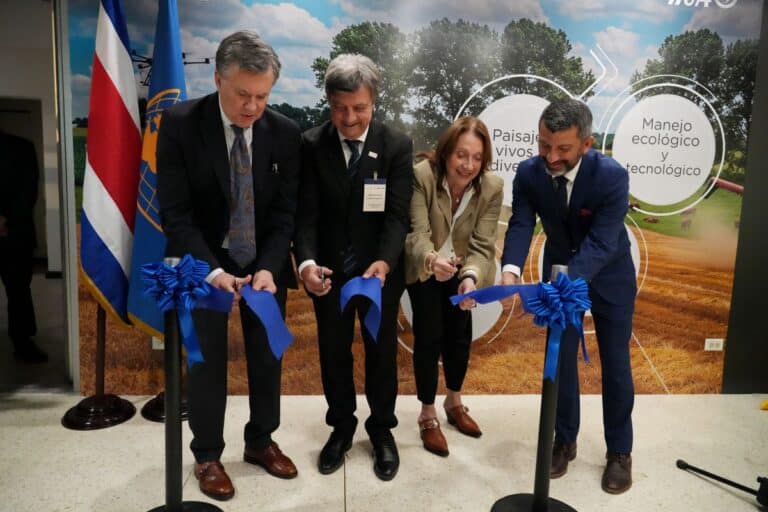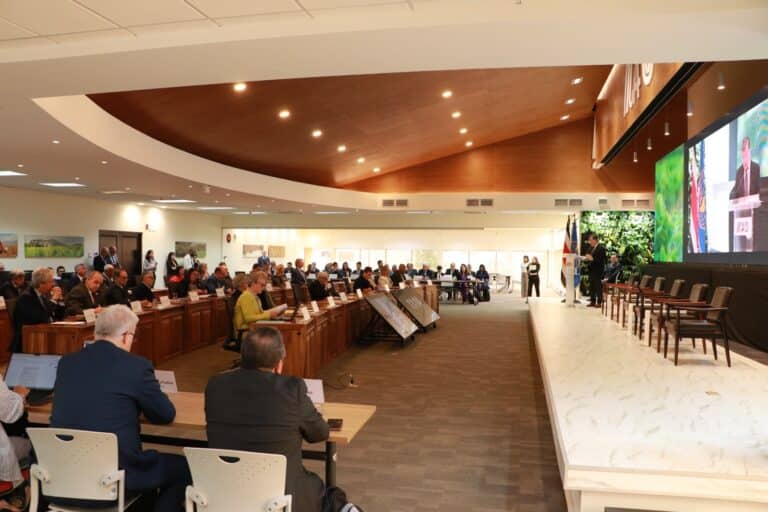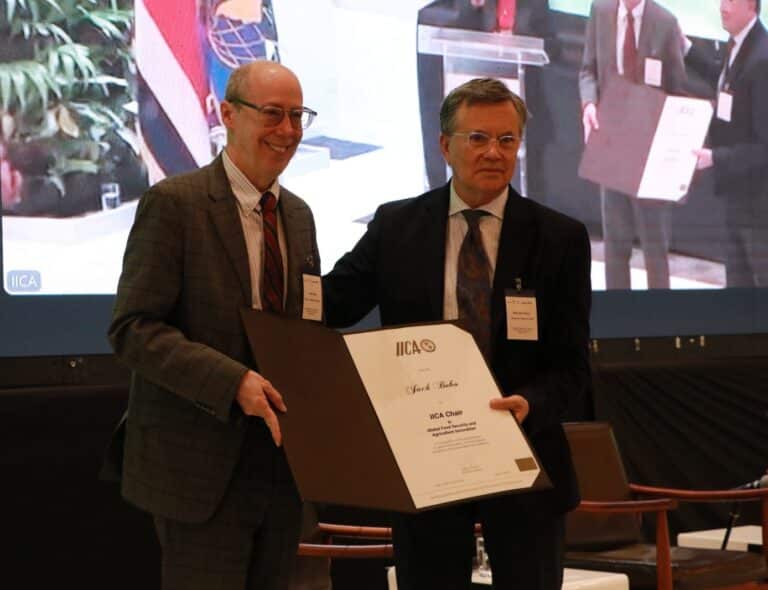They also called on developed nations to fulfill their responsibility to provide developing countries with financial resources for climate change mitigation and adaptation, pursuant to the 2015 Paris Agreement.
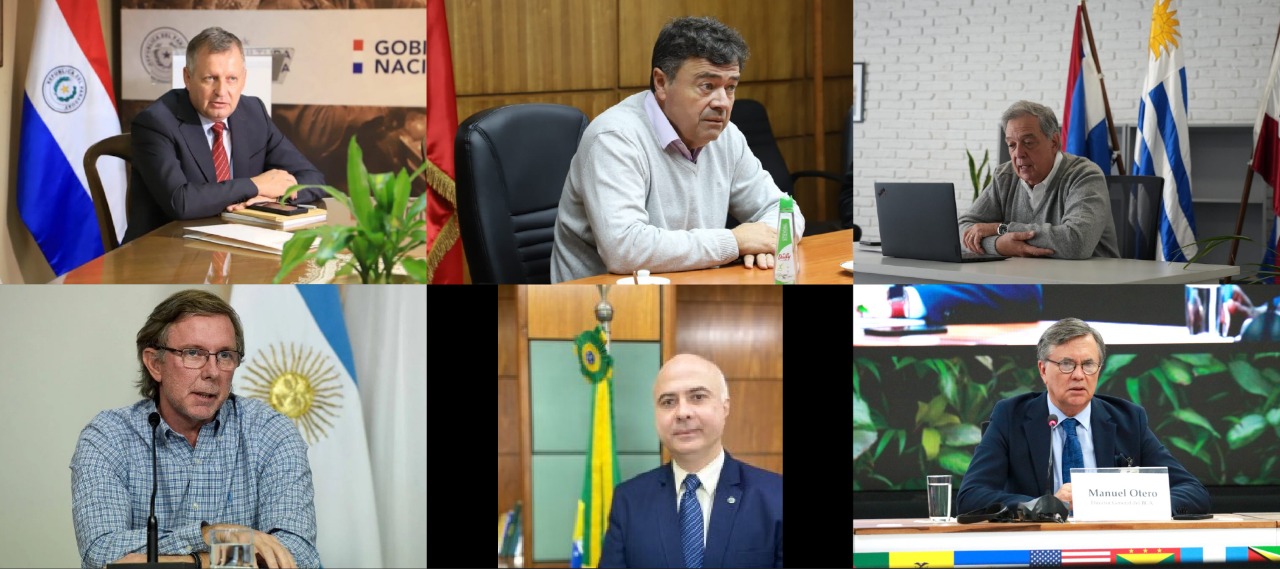
MONTEVIDEO, 16 September 2022 (CAS) – During a meeting of the Southern Agricultural Council (CAS), the ministers and secretaries of Agriculture of Argentina, Brazil, Chile, Paraguay and Uruguay noted that their countries’ production systems adopt practices to protect natural resources and produce “more with less”. They also called on developed nations to fulfill their responsibility to provide developing countries with financial resources for climate change mitigation and adaptation, pursuant to the 2015 Paris Agreement.
The CAS is the ministerial forum for consultation on and coordination of regional actions. It is comprised of the ministers and secretaries of Agriculture of Argentina, Bolivia, Brazil, Chile, Paraguay and Uruguay. Its purpose is to define the priorities of the agricultural agenda and adopt joint positions on issues of regional interest.
The Council met in Montevideo within the framework of Expo Prado 2022, one of the most important agricultural exhibitions in the world. This is the first time the Council has gathered in person since the onset of the Covid-19 pandemic, which triggered movement restrictions.
In attendance were Santiago Bertoni, Minister of Agriculture of Paraguay; Esteban Valenzuela, Minister of Agriculture of Chile; Fernando Mattos, Minister of Livestock, Agriculture and Fisheries of Uruguay; Juan José Bahillo, Secretary of Agriculture, Livestock and Fisheries of Argentina; Jean Marcel Fernández, Secretary of Trade and International Relations of the Ministry of Agriculture, Livestock and Supply of Brazil; and official Dedy González of the Ministry of Rural Development and Lands of Bolivia.
The Director General of the Inter-American Institute for Cooperation on Agriculture (IICA), Manuel Otero, was also present.
IICA serves as the Executive Secretariat of CAS. In that capacity, the Institute called for strengthening CAS and appointed Gabriel Delgado, the Institute’s Representative in Brazil and Regional Coordinator for the Southern Cone, as technical coordinator of these efforts.
Rodrigo Saldías, IICA Representative in Uruguay, will oversee the administration of the Council, whose headquarters will remain in Montevideo. The decision was endorsed by the ministers during the meeting.
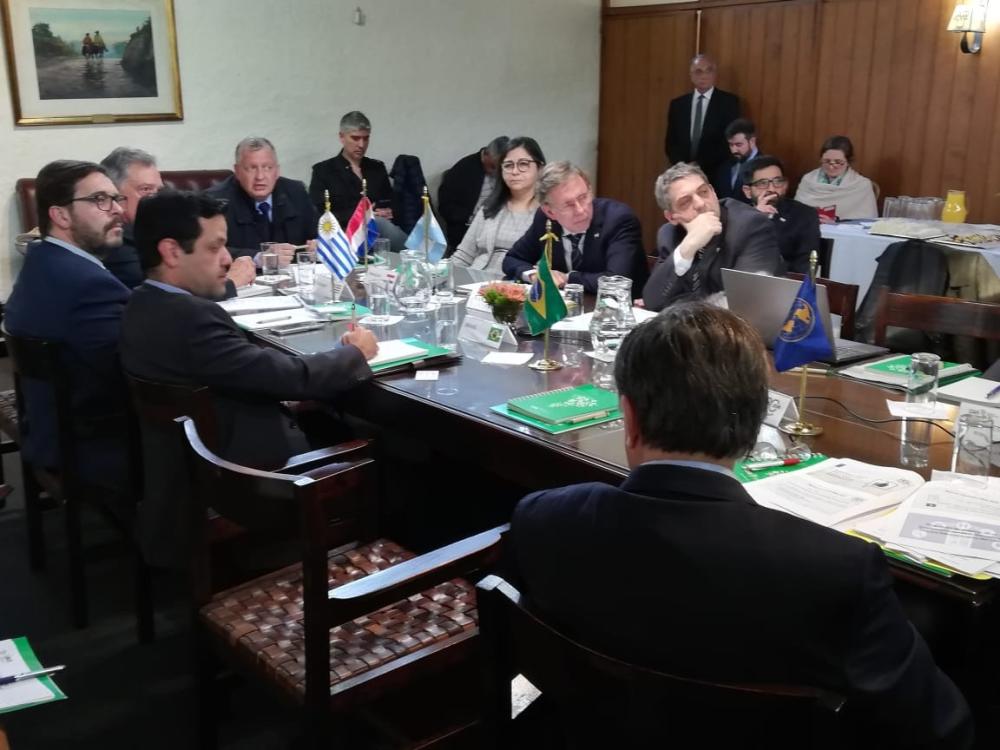
Special recognition was given to Alejandra Sarquis, who served as Technical Secretary of CAS with great responsibility and efficiency since the organization’s creation in 2003.
During the meeting, Paraguayan minister Santiago Bertoni transferred the pro tempore presidency of CAS to his Uruguayan counterpart, Fernando Mattos.
“We faced difficult times. During the pandemic, we had to create conditions to ensure that trade flows between our countries would not be disrupted”, said Bertoni. He highlighted several milestones from 2021, including the Region’s Declaration of Principles and Values for food production within the framework of sustainable development (XLII Regular Meeting of CAS – 05/04/21) and the document containing 16 messages from agriculture in the Americas, prepared under IICA’s coordination for the UN Food Systems Summit.
Mattos also praised IICA’s work and regretted the fact that “agriculture was being placed in the dock, as if it were the biggest culprit behind climate change”.
A region vulnerable to climate change
At the meeting, the ministers drafted a joint statement in which they agreed that the agriculture sector in Latin America and the Caribbean is one of the world’s leading food producers and is highly vulnerable to climate change.
They expressed their concern regarding “certain arbitrary and unjustified initiatives and proposals put forward by some countries or blocs, which, far from resolving the issues we currently face, will only exacerbate the vulnerability of the poorest populations to climate change, reducing production and international trade in raw materials and healthy, safe, nutritious and sustainable food”.
The ministers also expressed the need to intensify efforts to develop a common vision for the agriculture sector of the Americas with respect to climate change mitigation and adaptation ahead of the UN conference (COP 27), which will be held in November in Egypt.
“Despite not being the primary contributors to climate change”, reads the statement, “CAS countries contribute significantly to global food security. This has been possible because the agriculture sector has achieved progress in developing the necessary state and private institutional frameworks for innovation and for the development of agricultural technologies, as well as its human capital, which is prepared to address the new challenges imposed by climate change”.
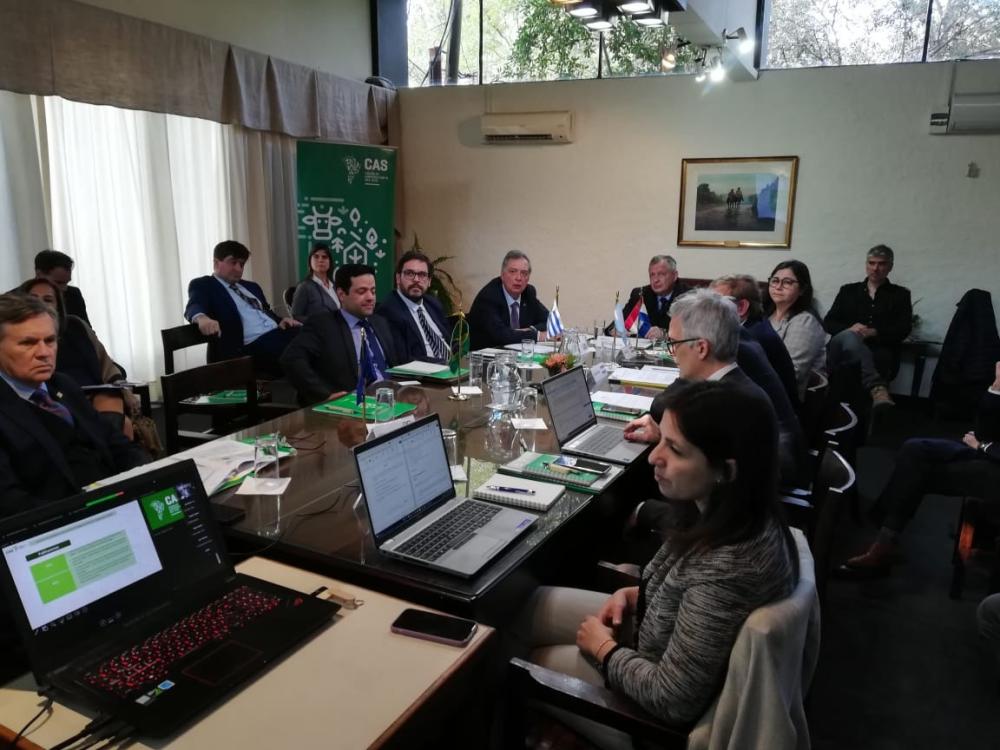
“In an effort to continue providing the world with healthy, safe, nutritious and sustainable food, we reiterate our commitment to prioritizing sustainable production and adaptation, as key areas of work”, stated the ministers.
They also stressed that there is no one-size-fits-all production model and that solutions must be adapted to local realities. They also reiterated their commitment to the continuous improvement of production systems, while protecting food security, and noted that any transition must be fair, leaving no one behind.
With respect to the global discussion that will take place at COP 27, they recalled that the Paris Agreement recognizes the principle of common but differentiated responsibilities.
“As developing countries, CAS Member Countries call for greater funding to support national climate action efforts, while respecting the priorities and needs of the country taking action”, they stated.
“We urge developed countries to make substantive and operational commitments in terms of funding, primarily in the form of investments that can facilitate agricultural adaptation, improve rural infrastructure, as well as support research, technology transfer and training”, they concluded.
More information:
Institutional Communication Division.
comunicacion.institucional@iica.int

